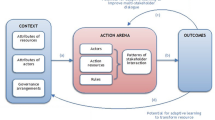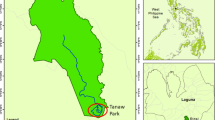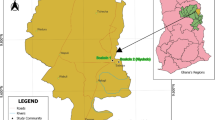Abstract
This study investigated the perceived importance of scholars’ participation in combating-desertification programs in northwest China and analyzed the underlying factors and mechanisms. Our results show that, while various experts, professors, and researchers have participated in combating-desertification programs, their actions were often not effective. Only those scholars who understood the local situations adequately had important and positive impacts. These scholars served as information brokers between the governments and other stakeholders, entrepreneurial activity organizers for farmers, governmental representatives, or advocators for local affairs themselves. They played indispensible roles in facilitating efforts in combating desertification. The study also identified key factors that led to the success of scholars’ participation in combating-desertification activities. Our findings have practical implications for improving the effectiveness of scholars’ participation in land restoration and environmental management.

Similar content being viewed by others
References
AXBW (Anxixian Xianzhi Bianzuan Weiyuanhui) (1992) Anxi Xianzhi (County Annals of Anxi). Zhishi Chubanshe, Beijing (in Chinese)
Buchanan JM (1965) The economic theory of club. Economica 32:1–14
Campbell A (1992) Landcare in Australia: taking the long view in tough times. Third annual report. National Soil Conservation Program, Canberra
CCICCD (Secretariat of China National Committee for the implementation of the United Nations Convention to Combat Desertification) (April 2000) Presented at China national report on the implementation of United Nations Convention to Combat Desertification and national action programme to combat desertification, Beijing, China
CCICCD (Secretariat of China National Committee for the implementation of the United Nations Convention to Combat Desertification) (April 2002) Presented at China national report to implement the United Nations Convention to Combat Desertification (UNCCD), Beijing, China
Coase R (1960) The problem of social costs. Journal of Law and Economics 3:1–44
Coase R (1974) The lighthouse in economics. Journal of Law and Economics 17(2):357–376
Davis DK (2005) Indigenous knowledge and the desertification debate: problematising expert knowledge in North Africa. Geoforum 36:509–524
Demsetz H (1970) The private production of public goods. Journal of Law and Economics 10(13):293–306
DSBW (Dunhuang Shizhi Bianzuan Weiyuanhui) (1994) Dunhuang Shishi (City Annals of Dunhuang). Xinhua Chubanshe, Beijing (in Chinese)
Fan S, Zhou L (2001) Desertification control in China: possible solutions. Ambio 30(6):384–385
Fullen MA, Mitchell DJ (1994) Desertification and reclamation in North-Central China. Ambio 23(2):131–135
GDCRI (Gansu Desert Control Research Institute) (2006) Jinta Zhisha Shiyanzhan (Jinta Desert Control Station). [Online] URL:http://www.gsdcri.com/about-jd/1-1.html
GDCRI (Gansu Desert Control Research Institute) (2009a) Jingtai Experimental Station. [Online] URL:http://www.gsdcri.com/english/index/4-3.asp
GDCRI (Gansu Desert Control Research Institute) (2009b) Minqin Experimental Station. [Online] URL:http://www.gsdcri.com/english/index/4-1.asp
GDCRI (Gansu Desert Control Research Institute) (2009c) Linze Experimental Station. [Online] URL:http://www.gsdcri.com/english/index/4-2.asp
George AL, Bennett A (2005) Case studies and theory development in the social sciences. MIT Press, Cambridge
Gordon HS (1954) The economic theory of a common-property resource: the fishery. Journal of Political Economy 62(4):124–142
Hardin G (1978) Political requirements for preserving our common heritage. In: Bokaw HP (ed) Wildlife and America. Council on Environmental Quality, Washington, DC, pp 310–317
Hogg MA, Vaughan GM (2002) Social psychology, 3rd edn. Prentice Hall, London
JDBW (Jintaxian Difangzhi Bianzuan Weiyuanhui) (1992) Jinta Xianzhi (County Annals of Jinta). Gansu Renmin Chubanshe, Lanzhou, Gansu (in Chinese)
JXBW (Jingtai Xianzhi Bianzuan Weiyuanhui) (1996) Jingtai Xianzhi (County Annals of Jingtai). Lanzhou University Press, Lanzhou, Gansu (in Chinese)
Li XR, Chen GT, Qu JJ, Chen HZ, Wang XM (2003) Chapter 13. In: Wang T (ed) Desert and desertification in China. Hebei Science and Technology Publishing House, Shijiazhuang, Hebei, pp 595–639 (in Chinese)
Li J, Wang G, Wang H (2004) Landscape pattern change of the new oasis in the Jingtai Electrical Irrigation Area. Acta Prataculturae Sinica 13(4):112–116
Lichbach MI (1996) The Cooperator’s dilemma. University of Michigan Press, Ann Arbor, MI
Lindskog P, Tengberg A (1994) Land degradation, natural resources and local knowledge in the sahel zone of Burkina Faso. GeoJournal 33(4):365–375
LXBW (Linzexian Xianzhi Bianzuan Weiyuanhui) (2001) Linze Xianzhi (County Annals of Linze). Gansu Renmin Chubanshe, Lanzhou, Gansu (in Chinese)
Mills CW (1959) The sociological imagination. Oxford University Press, London
MXBW (Minqin Xianzhi Bianzuan Weiyuanhui) (1994) Minqin Xianzhi (County Annals of Minqin). LanZhou University Press, Lanzhou, Gansu (in Chinese)
Olson M (1971) The logic of collective action: public goods and the theory of groups. Harvard University Press, Cambridge
Ostrom E (1990) Governing the commons the evolution of institutions for collective action. Cambridge University Press, New York
Ostrom E (2000) The danger of self-evident truths. PS: Political Science and Politics 33(1):33–44
Plummer K (2001) Documents of life 2: an invitation to a critical humanism. Sage Publications, London, Thousand Oaks and New Delhi
Plummer R, FitzGibbon J (2004) Some observations on the terminology in co-operative environmental management. Journal of Environmental Management 70:63–72
Posner RA (2001) Public intellectuals: a study of decline. Harvard University Press, Cambridge, MA
Pretty J, Ward H (2001) Social capital and the environment. World Development 29(2):209–227
Reed MS, Dougill AJ, Taylor MJ (2007) Integrating local and scientific knowledge for adaptation to land desertification: Kalahari rangeland management options. Land Degradation and Development 18(3):249–268
SACDS (Science associations to convene desertification seminar) (1977) Science. New Series 197(4303):548–549
Seely MK (1998) Can science and community action connect to combat desertification? Journal of Arid Environments 39:267–277
Sitaraman S (2006) Regulating the environment: assessing China’s domestic environmental law and participation in international treaties. The China Review 6(1):183–196
Smith RJ (1981) Resolving the tragedy of the commons by creating private property rights in wildlife. CATO Journal 1:439–468
Stringer LC, Reed MS (2007) Land degradation assessment in Southern Africa: integrating local and scientific knowledge bases. Land Degradation & Development 18(1):99–116
Taddese G (2001) Land degradation: a challenge to Ethiopia. Environmental Management 27(6):815–824
Thomas DSG (1997) Science and the desertification debate. Journal of Arid Environments 37(4):599–608
Thomas DSG, Twyman C (2004) Good or bad rangeland? Hybrid knowledge, science, and local understandings of vegetation dynamics in the Kalahari. Land Degradation & Development 15(3):215–231
Tschakert P (2007) Views from the vulnerable: understanding climatic and other stressors in the Sahel. Global Environmental Change 17(3–4):381–396
UN (United Nations) (1992) Managing fragile ecosystems: combating desertification and drought, chapter 12 of agenda 2. United Nations, New York
Varjopuro R, Gray T, Hatchard J, Rauschmayer F, Wittmer H (2008) Introduction: interaction between environment and fisheries—the role of stakeholder participation. Marine Policy 32:147–157
Wang T (2003) Desert and desertification in China. Hebei Science and Technology Publishing House, Shijiazhuang, Hebei (in Chinese)
Weber M (1978) Economy and society: an outline of interpretive sociology. University of California Press, Berkeley
Wu J (2001) Desertification. In: Robinson R (ed) Plant sciences for students. Macmillan Reference, New York, pp 70–73
Wu J (2005) A new paradigm for a transdisciplinary science of desertification. Diversity and Distributions 11:362–363
Yang LH (2007a) Scholar-based governance: a fourth model to collective action. Chinese Public Administration 259(1):96–103 (in Chinese, with English abstract)
Yang LH (2007b) Building a multi-collaborative community governance system to resolve the dilemma of collective action: A framework of “product-institutional” analysis (PIA). Journal of Public Management 4(2):6–23 (in Chinese, with English abstract)
Yang L (2009) Scholar-participated governance: combating desertification and other dilemmas of collective action. Dissertation, Arizona State University, Phoenix, AZ
Yang L, Wu J (2009) Scholar-participated governance as an alternative solution to the problem of collective action in social–ecological systems. Ecological Economics 68(8–9):2412–2425
Yang L, Wu J (2010) Seven principles for promoting scholars’ participation in combating desertification. International Journal of Sustainable Development and World Ecology 17(2):109–119
Yuan D, Ma Y (2006) Jinta de Shamohua Fangzhi (Desertification control in Jinta). Forestry of Gansu 6:16
Zha Y, Gao J (1997) Characteristics of desertification and its rehabilitation in China. Journal of Arid Environment 37(3):419–432
Zhao X (2003) Probe to the strategy of environmental protection and ecological agriculture construction in Hexi Oasis. Journal of Arid Land Resources and Environment 17(4):8–12 (in Chinese, with English abstract)
ZTNB (Zhongwei Tongji Nianjian Bianjibu) (2006) Zhongwei Tongji Nianjian 2006 (Zhongwei statistical yearbook 2006). Zhongwei Tongjiju, Zhongwei, Ningxia, China (in Chinese)
ZXBW (Zhongweixian Xianzhi Bianzuan Weiyuanhui) (1995) Zhongwei Xianzhi (County Annals of Zhong Wei). Ningxia Renmin Chubanshe, Yinchuang (in Chinese)
Acknowledgments
This study was supported in part by the Fundamental Research Funds for the Central Universities (YWF-10-03-010) and a scholarship from the School of Public Affairs at Arizona State University. The authors wish to thank Professor Elinor Ostrom, Professor Vincent Ostrom, Professor Ronald Perry, Professor R. F. “Rick” Shangraw, Ms. Robbie Robichau, Dr. Alexander Buyantuyev, Dr. Christopher M. Clark, Dr. Jie Zhang, Mr. Congguo Tang, and Mr. Fei Yuan for their helpful suggestions and constructive criticisms. Special thanks go to the four anonymous reviewers whose suggestions have led to a significant improvement of the article.
Author information
Authors and Affiliations
Corresponding author
Rights and permissions
About this article
Cite this article
Yang, L., Lan, Z. & Wu, J. Roles of Scholars in the Practice of Combating-Desertification: A Case Study in Northwest China. Environmental Management 46, 154–166 (2010). https://doi.org/10.1007/s00267-010-9534-y
Received:
Accepted:
Published:
Issue Date:
DOI: https://doi.org/10.1007/s00267-010-9534-y




